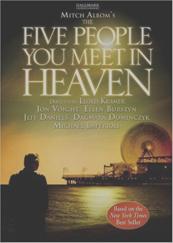题目内容
As he moved farther into the cave, he noticed that the water was moving ________ and not towards the open air.
- A.inside
- B.inwards
- C.within
- D.outwards

|
| Is a loved one missing some body parts? Is everyone at your dinner table of the same species? Humans and chimps(黑猩猩)differ in only 400 genes. And should that worry us ?Is it horrible for you thinking one fifth of all our genes are owned by someone else, or a person and his family may be hunted cross-country because they happen to have certain valuable genes? We live in a time of great scientific leaps! Next challenges our sense of reality, blending fact and fiction into a breathless tale of a new world where nothing is what it seems. |
|
| The son of a zookeeper, 16-year-old Pi Patel is raised in Pondicherry. India. Planning a move to Canada, his family takes a ride on an enormous ship. After a shipwreck。Pi finds himself in the Pacific Ocean, trapped on a 26-foot lifeboat with a wounded zebra, a hyena(鬣狗), a orangutan(猩猩), and a tiger named Richard Parker It sounds like a colorful setup. But these wild animals don’t burst into song as in the Disney cartoons. All want to survive, however Pi finds himself the weakest one of all. After much infighting, Pi and Richard Parker remain the boat’s only passengers. Pi is left to survive for 227 days through waters with his large dangerous companion, using all his knowledge, wits and faith. |
|
| Five people you meet in heaven When a lonely and elderly man dies in an accident, he awakens in an unfamiliar place called Heaven where five people, some strangers, some loved ones, take him on a clear journey through his life. Each soul has a story to tell, a secret to reveal(揭示), and a lesson to share. Through them Eddie learns “lessons”, finds out why certain events happened in his physical life, and understands the meaning of his own life. The book explores the unexpected mysteries of the afterlife by reminding us what really matters here on earth |
|
| Marley&Me:life and love with the world’s worst dog Job and Jenny were just beginning their life together They brought home Marley, a yellow fur-ball of a dog Life would never be the same. Marley crashed through doors, and ate nearly everything he could get his mouth around. However, just as he refused any limits on his behavior, his love and loyalty were boundless, too. He shard the couple’s joy and heartbreak. He was there whenever the couple needs help Marley&Me is so much more than the story of a lovable dog;it’s the story of a family. Toward the end of book, Grogan speaks of the life lessons-loyalty, courage, devotion, simplicity, joy-that Marley taught him. |
1. What does the underlined word “blending” in the first hook introduction mean_________.
A. ruin B. break C. combine D. attempt
2. What happened to the survivors on the life boat according to the introduction?
A. Pi managed to kill those animals and finally survived
B. They worked hand in hand to get through the sea
C. They had to fight against one another in order to survive
D. Richard Parker killed other animals but was killed by Pi.
3. Five People You Meet in Heaven tells an old man’s experience in Heaven in order to reveal___.
A. the existence of Heave B. the mystery of death
C. human’s future life D. the true meaning of life
4. Who is Grogan most probably according to the introduction?
A. The author of Marley&Me B. A friend of John and Jenny
C. An expert taming dogs. D. The previous owner of the dog



